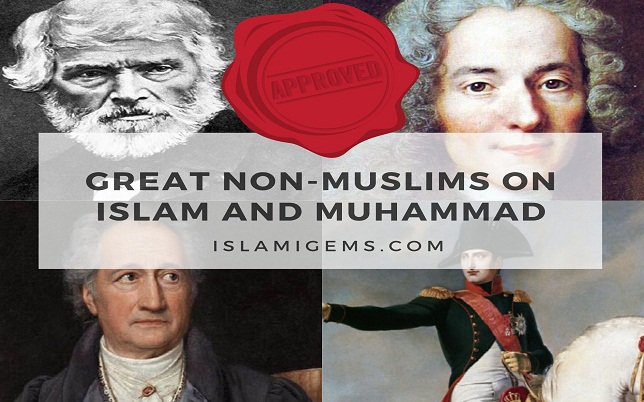Followers of Islam have such immense respect, love and affection for their Noble Prophet that their reverence for Prophet Muhammad can hardly be described in words. Whatever they say or write about him may be deemed by some non Muslims to be an exaggeration.
But, if the evidence in regard to personality and life of Prophet Muhammad is found in statements of the learned and distinguished personalities of other religions, then this could be considered a worthy testimony, from the people of the same religious order.
Therefore we present the universal personage of the Prophet of Islam, as depicted by renowned non Muslim intellectuals, historians, authors, philosophers, generals, spiritual and temporal leaders of the world.
Here we reproduce a number of eulogies of the Noble Prophet Muhammad by the eminent learned non-Muslim personalities of the world.
Related: What is Islam?
Contents
Famous American Author James Michener likes Prophet Muhammad
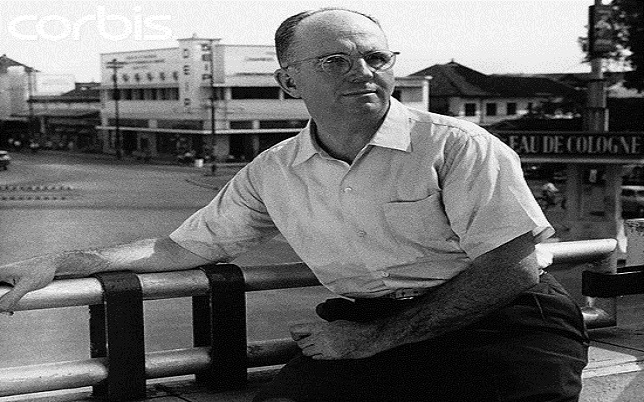
The eminent American author, Mr. James A. Michener writes about the Holy Prophet of Islam in his book titled Islam the Misunderstood Religion. Here we present a brief life sketch of Prophet Muhammad from his work:
“Muhammad, the inspired man who founded Islam*, was born about A.D. 570 into an Arabian tribe that worshiped idols.
Orphaned at birth, he was always particularly solicitous of the poor and needy, the widow and the orphan, the slave and the downtrodden.
At twenty, he was already a successful businessman, and soon became director of camel caravans for a wealthy widow.
When he reached twenty-five, his employer, recognizing his merit, proposed marriage. Even though she was fifteen years older, he married her, and as long as she lived, remained a devoted husband.”
“Like almost every major prophet before him, Muhammad fought shy of serving as the transmitter of God’s word, sensing his own inadequacy. But the Angel commanded ‘Read.’
So far as we know, Muhammad was unable to read or write, but he began to dictate those inspired words which would soon revolutionize a large segment of the earth: ‘There is one God.’
No other religion in history spread so rapidly as Islam.
The West has widely believed that this surge of religion was made possible by the sword. But no modern scholar accepts this idea, and the Quran is explicit in the support of the freedom of conscience.
“In all things Muhammad was profoundly practical. When his beloved son Ibrahim died, an eclipse occurred, and rumors of God’s personal condolence quickly arose. Whereupon Muhammad is said to have announced, ‘An eclipse is a phenomenon of nature. It is foolish to attribute such things to the death or birth of a human being.’
“At Muhammad’s own death an attempt was made to deify him, but the man who was to become his administrative successor killed the hysteria with one of the noblest speeches in religious history: ‘If there are any among you who worshiped Muhammad, he is dead. But if it is God you worshiped, He lives forever.’”1
* The founder of Islam is misnomer for the holy Prophet. Islam is the last religion of the prophetic cycle. All Prophets including Muhammad were the messengers of Allah and conveyed the same basic Islamic fundamentals to mankind.
1. “Islam: The Misunderstood Religion”, by James A. Michener. Reader’s Digest, pp. 68-70, May 1955.
Related: What are the Islamic beliefs about Allah?
Challenge of French Historian Alphonse de Lamartine-No Man is Greater than Muhammad

Distinguished non Muslim French historian Alphonse de Lamartine, posed a tremendous challenge to the world about Noble Prophet Muhammad. Here is the challenge in his own words;
“Never has a man set for himself, voluntarily or involuntarily, a more sublime aim, since this aim was superhuman; to subvert superstitions which had been imposed between man and his Creator, to render God unto man and man unto God; to restore the rational and sacred idea of divinity amidst the chaos of the material and disfigured gods of idolatry, then existing.”
“Never has a man undertaken a work so far beyond human power with so feeble means, for he (Muhammad) had in the conception as well as in the execution of such a great design, no other instrument than himself and no other aid except a handful of men living in a corner of the desert.”
“Finally, never has a man accomplished such a huge and lasting revolution in the world, because in less than two centuries after its appearance, Islam, in faith and in arms, reigned over the whole of Arabia, and conquered, in God’s name, Persia, Western India, Abyssinia, Syria, Egypt, all the known continent of Northern Africa, Spain, etc”.
“If greatness of purpose, smallness of means, and astounding results are the three criteria of human genius, who could dare to compare any great man in modem history with Muhammad?”
“The most famous men created arms, laws and empires only. They founded if anything at all, no more than material powers which often crumbled away before their eyes.”
Muhammad’s unmatched accomplishments
“This man moved not only armies, legislations, empires, peoples and dynasties, but millions of men in one-third of the then inhabited world; and more than that, he moved the altars, the gods, the religions, the ideas, the beliefs and souls.”
“…. his forbearance in victory, his ambition, which was entirely devoted to one idea and in no manner striving for an empire; his endless prayers, his mystic conversations with God, his death and his triumph after death: all these attest not to an imposture but to a firm conviction which gave him the power to restore a dogma.”
“This dogma was twofold, the unity of God and the immateriality of God; the former telling what God is, the latter telling what God is not; the one overthrowing false gods with the sword, the other starting an idea with words.”
No man can compete with Muhammad
“Philosopher, orator, apostle, legislator, warrior, conqueror of ideas, restorer of rational dogmas, of a cult without images; the founder of twenty terrestrial empires and of one spiritual empire, that is Muhammad.”
“As regards all standards by which human greatness may be measured, we may well ask, is there any man greater than he?”1
This is a challenge for all, for the whole world and for all the times, but no one would dare to say yes in answer to this challenge until the end of time. However the only answer to this challenging question by reason and logic would always be a resounding “No.”
- Histoire de la Turquie. Alphonse de Lamartine
Related: Why Hindus of India need to understand Islam?
Father of India – Mahatma Gandhi Admired Prophet Muhammad

Mahatma Gandhi (1869-1948), the renowned nationalist Leader of India was deeply impressed with the personality and mission of Prophet Muhammad. He wanted to read as much as possible about Prophet Muhammad. Have a look at the reverence he had for Prophet Muhammad:
“I wanted to know the best of the life of one who holds today undisputed sway over the hearts of millions of mankind.
I became more than ever convinced that it was not the sword that won a place for Islam in those days in the scheme of life.
It was rigid simplicity, the utter self-effacement of the Prophet, the scrupulous regard for pledges, his intense devotion to his friends and followers, his intrepidity, his fearlessness, his absolute trust in God and in his own mission.
Those and not the sword carried everything before them and surmounted every obstacle.
When I closed the second volume (of the Prophet’s biography), I was sorry there was not more for me to read of that great life”1
1. Mahatma Gandhi: Young India, Lahore, September 16, 1924
Related: Muslims were the leaders of Indian war of independence
American Author Michael Hart-Muhammad is the Most Influential Person in History
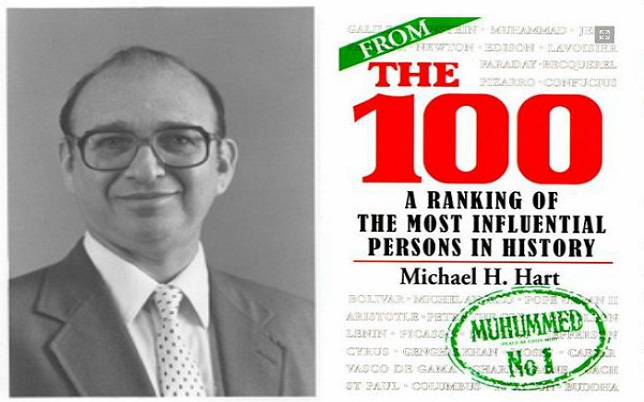
In recent years Michael H. Hart ranked the noble Prophet Muhammad at No. 1 in his list of the 100 most influential persons of the world who changed the course of history. He writes in his book, The 100: A Ranking of the Most Influential Persons in History. Michael Hart explains the reasons for selecting Prophet Muhammad:
“My choice of Muhammad to lead the list of the world’s most influential persons may surprise some readers and may be questioned by others, but he was the only man in history who was supremely successful on both the religious and secular levels.
Of humble origins, Muhammad founded and promulgated one of the world’s great religions, and became an immensely effective political leader.
Today, thirteen centuries after his death, his influence is still powerful and pervasive”
Prophet Muhammad- Most Astonishing Man Ever
Michael Hart claims that accomplishments of Muhammad have no parallel in human history:
“….The Bedouin tribesmen of Arabia had a reputation as fierce warriors. But their number was small; and plagued by disunity and internecine warfare, they had been no match for the larger armies of the kingdoms in the settled agricultural areas to the north.
However, unified by Muhammad for the first time in history, and inspired by their fervent belief in the one true God, these small Arab armies now embarked upon one of the most astonishing series of conquests in human history”
Unprecedented Achievements of Prophet Muhammad
“….In fact, as the driving force behind the Arab conquests, he may well rank as the most influential political leader of all time…
Nothing similar had occurred before Muhammad, and there is no reason to believe that the conquests would have been achieved without him”
“….We see then, that the Arab conquests of the seventh century have continued to play an important role in human history, down to the present day.
It is this unparalleled combination of secular and religious influence which I feel entitles Muhammad to be considered the most influential single figure in human history.”
Related: Prophet Muhammad in Hindu scriptures
George Bernard Shaw-Only Path of Muhammad has the Solution to World Problems
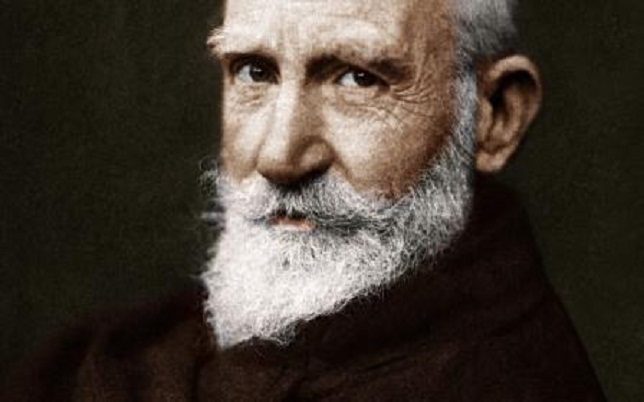
George Bernard Shaw (1856-1950) was the most significant British playwright since the 17th century, and winner of the Nobel Prize for Literature in 1925. His plays are permeated by his passion for social reform.
In his own peculiar style, George Bernard Shaw writes about Islam:
“If any religion had the chance of ruling over England, nay Europe within the next hundred years, it could be Islam.”
George Bernard Shaw writes about Prophet Muhammad:
“I have always held the religion of Muhammad in high estimation because of its wonderful vitality.
It is the only religion which appears to me to possess that assimilating capacity to the changing phase of existence which can make itself appeal to every age.
I have studied him – the wonderful man and in my opinion far from being an anti- Christ, he must be called the Savior of Humanity.”
He says further about Prophet Muhammad:
“I believe that if a man like him were to assume the dictatorship of the modem world he would succeed in solving its problems in a way that would bring it the much needed peace and happiness
I have prophesied about the faith of Muhammad that it would be acceptable to the Europe of tomorrow as it is beginning to be acceptable to the Europe of today.”1
1. The Genuine Islam, Sir George Bernard Shaw. vol. I.no. 8, 1936
Related: How Islam gave respect and dignity to Africans
European Emperor Napoleon Bonaparte-Declared Himself a Muslim & wanted to Follow Quran

Napoleon Bonaparte (1769-1821) was the Emperor of France who dissolved the Roman Empire and became the ruler of the whole Continent of Europe.
Napoleon was very much impressed by the universal personage of the Prophet of Islam, and considered him the great law giver of the world.
Napoleon visited the Al-Azhar University in Egypt and discussed ‘Voltaire’s Muhammad’ with the learned Muslim scholars there. In Alexandria at the peak of his power, he publicly declared:
“Nous Sommes ies vrais musulmans. ” (We all are Muslims).1
He prepared the Code of Napoleon after examining the Compendium of the Islamic Legal System. The Code of Napoleon is still the basis of French Law. The British drafted the Indian Panel Code in 1860, almost on the same pattern of the Napoleon Code.
Napoleon Bonaparte admired Muhammad
Napoleon saluted the Prophet of Islam with a deep sense of admiration.
“I salute this great leader.”
Napoleon further observed:
“Muhammad, in reality was a great leader of mankind.
His followers conquered half of the world in a short time, and the discipline which they maintained under his leadership was simply marvelous, and so was their bravery, courage and devotion to the cause which they loved and cherished.
This, coupled with the contempt for death as taught by their leader, made them great soldiers and fighters, the like of whom history rarely produces.
I simply marvel at the achievement of this Son of the Desert within a period of only 15 years – a thing which Moses and Christ could not do in fifteen hundred years.
I salute this great man; I salute his qualities of head and heart.”2
Napoleon considered Islam as ‘The Last Religion’
“Moses has revealed the existence of God to his nation, Jesus Christ to the Roman world, Muhammad to the old continent.
Arabia was idolatrous when, six centuries after Jesus, Muhammad introduced the worship of the God of Abraham, of Ishmael, of Moses, and of Jesus.
Muhammad declared that there was none but one God, Trinity imported the idea of idolatry.”3
Napoleon’s Desire to Establish Islamic State
“I hope the time is not far off when I shall be able to unite all the wise and educated men of all the countries, and establish a uniform regime based on the principles of the Quran, which alone are true, and which alone can lead men to happiness.”4
Islam: Last Love of Napoleon
Emil Ludwig, the biographer of Napoleon, writes that Napoleon was speaking of his preference of the religion of Islam to those around him three days before his death.
- Muhammad, A Biography of the Prophet , Karen Armstrong, page 38.
- The Glory of Islam, Published by Seerat International Research Centre, Islamabad, page 35.
- Bonaparte et L’ Islam, Cherfils, Paris, pp. 105-125.
- Ibid.
Related: What are the five pillars of Islam and what do they mean?
Francois Voltaire-Muhammad is the Most Extraordinary Revolutionary Ever
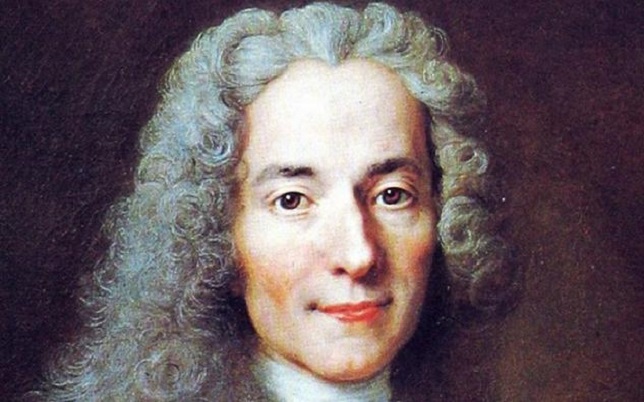
Francois Voltaire (1694-1778) is contemporary of Edward Gibbon, and one of the most famous French authors. He was a courageous fighter against tyranny, bigotry and cruelty of the rulers and clergy. He is master of critical analysis, wit and satire.
In his historical work Voltaire frankly spoke against papal intolerance, but appreciated progressive measures of Islamic movement, an appreciation which resulted in many problems for him.
Warrants of arrest were issued against him for his revolutionary and alleged heretical writings. He was forced to flee from France to England, where Gibbon had attended Voltaire meetings.
Voltaire on Muhammad
Voltaire defended Muhammad in his book Les Moeurs et L’esprit des Nations as a profound political thinker and founder* of a rational religion.
Voltaire also pointed out that:
“Muslim polity had always been more tolerant than Christian tradition.”1
Voltaire has further observed as quoted by R. Bosworth Smith:
“The turn of Arabia came, when the hour had already struck when the most complete, the most sudden and the most extra ordinary revolution that has ever come over any nation upon earth”.2
*Founder is misnomer for the Prophet Mohammed. Islam is a continuation of all divine revelations of the past. The meaning of Islam is to surrender to the will of God.
It may be born in mind that Voltaire and few others who had given compliments on the Prophet of Islam had earlier made some adverse remarks against him, but those were before they embarked upon a deeper study of the Holy Prophet Muhammad’s life.
1. Muhammad, A Biography of the Prophet, Karen Armstrong, page 36.
2. The Glory of Muhammad, Published by Seerat International Centre Pakistan, page 58.
Related: Christianity is absurd to educated persons
Islam Hater H.G. Wells on Islam

H. G. Wells (1866-1946) who is known as visionary of science, despite his antagonism against the religion of Islam, HG Wells cannot deny the unmatched and unprecedented impact of the teachings of the Prophet Muhammad:
“From a new angle and with a fresh vigour, Islam took up that systematic development of positive knowledge which the Greeks had begun and relinquished.
If the Greek was the father, then the Arab was the foster-father of the scientific method of dealing with reality, that is to say, by absolute frankness, the utmost simplicity of statement and explanation, exact record and exhaustive criticism.”
HG Wells has no choice but to admit that:
“Through the Arabs it was, and not by the Latin route, that the modem world received that gift of light and power.”1
HG Wells says at another place:
“The Islamic teachings have left great traditions for equitable and gentle dealings and behavior, and inspire people with nobility and tolerance.
These are human teachings of the highest order and at the same time practicable.
These teachings brought into existence a society in which hard-heartedness and collective oppression and injustice were the least as compared with all other societies preceding it….Islam is replete with gentleness, courtesy, and fraternity.”
1. The Outline of History, London(1920)
Note to the reader: The reader must remember that HG Wells is among those authors who have made many derogatory remarks about Prophet Muhammad. Here we are quoting him to reiterate the fact that even the sworn enemies of Islam have no choice but to accept the greatness of Muhammad ﷺ in one way or the other.
Related: Prophet Muhammad’s sermon when he conquered Mecca.
British Historian Thomas Carlyle- Muhammad is a Hero Prophet
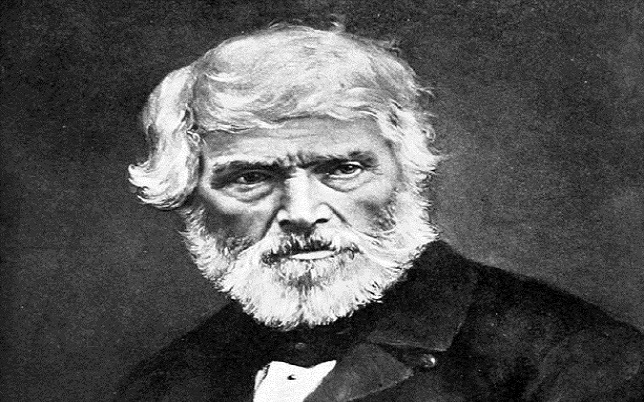
About 200 years ago Thomas Carlyle, political philosopher and unbiased historian of England, was courageous enough to frankly admit the fault of Europe for its contemptuous attitude towards the Prophet, in his famous book On Heroes, Hero-Worship, and the Heroic in History.
He had not only dispelled the misgivings and medieval prejudices of his people about the Prophet of Islam, but highlighted his dignified person as a hero Prophet.
Some of the amazing aspects of the Prophet’s life addressed by Carlyle are worthy of consideration. He begins by mentioning the state of the Arabs:
“They were wild men, bursting ever and anon into quarrel, into all kinds of fierce sincerity; without right worth and manhood, no man could have commanded them.
They called him Prophet, you say?
Why, he stood there face to face with them; bare, not enshrined in any mystery; visibly clouting his own cloak, cobbling his own shoes; fighting, counseling, ordering in the midst of them: they must have seen what kind of a man he was. Let him be called what you like!
No emperor with his tiaras was obeyed as this man in a cloak of his own clouting.
During three-and-twenty years of rough actual trial. I find something of a veritable Hero necessary for that, of itself…”
Carlyle further says:
“Europe has begun now to sense the wisdom of Muhammad and has developed a passion for his religion.
It will also come to exonerate Islamic doctrine from all the false accusations laid at its door by Europeans in the Middle Ages.
The religion of Muhammad will be the system upon which peace and contentment will be founded.
From his Philosophy, Europe will derive the solution to perplexities, problems and complexities . . .
Many of my fellow countrymen and other Europeans venerate the teachings of Islam.
Hence I confirm my prophecy by saying that the first stirrings of the age of European Islam are near, this is inevitable.
Yes, the world today is in dire need of a man like Muhammad to solve its complex problems.
Muhammad was abstemious and simple in his abode, his food and his drink and his clothing and in the rest of his life and conditions.
His food consisted mainly of bread with dates and water.
He often mended his own clothes. What could be more honorable than this?
Hail Muhammad the Prophet of rough clothing and food, who strived, was active during the day and awake during the night and persistent in promoting the religion of Allah.
He was not one to covet that which lesser men covet such as rank, empire and power.
He is in truth the Prophet of the sublime morals.
A silent great soul – one that who could not but be earnest, he was to kindle the world as the Maker of the world had ordered so.
The lies which well-meaning zeal has heaped round this man [Muhammad] are disgraceful to us only.”
1. On Heroes, Hero-Worship, and the Heroic in History. Thomas Carlyle
Related: Prophet Muhammad’s last sermon at Hajj
British Historian T.W. Arnold – Islam is the Most Rational Religion
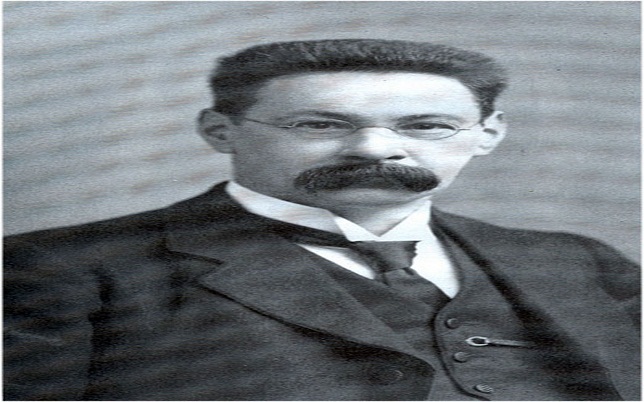
Sir Thomas Walker Arnold (1864–1930) was a British orientalist and historian of Islamic art who taught at Aligarh Muslim University. He says in his book “The Preaching of Islam”:
“Islam is a religion that is essentially rationalistic in the widest sense of this term considered etymologically and historically….
The teachings of the Prophet, the Quran has invariably kept its place as the fundamental starting point, and the dogma of unity of God has always been proclaimed therein with a grandeur and majesty, an invariable purity and with a note of sure conviction, which it is hard to find surpassed outside the pale of Islam….”
“A creed so precise, so stripped of all theological complexities and consequently so accessible to the ordinary understanding might be expected to possess and does indeed possess a marvelous power of winning its way into the consciences of men“.
W. Arnold ‘The Preaching of Islam’ London 1913
Related: Extreme barbarity of British rulers on Indian Muslims
German Philosopher Johann Goethe – Muhammad is the Hero of Humanity
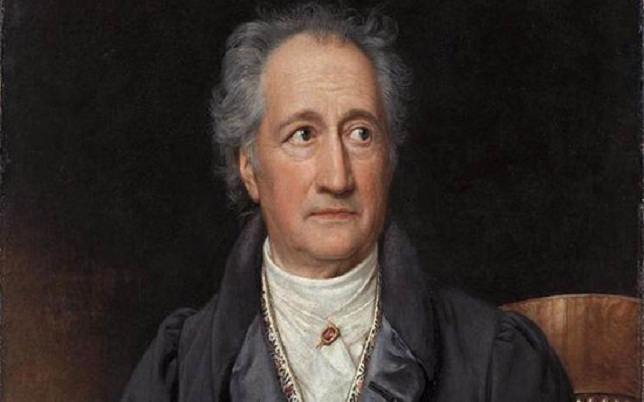
Johann Goethe of Germany (1749-1832), a many sided genius, has been acknowledged as a world figure. His writings opened up the literary treasure for all who are interested in the common good of humanity. West-östlicher Divan (Divan of East and West) is his outstanding contribution to unite the West with the East.
He was a natural philosopher, and the first statesmen of Europe who fought with undaunted courage against all sorts of slanderous attacks on the noble soul of the Prophet of Islam.
Goethe never ceased to praise the Prophet Muhammad as the founder of the finest culture, and believed him to be the most truthful Prophet.
In one of his best poems, he has compared the life of the Noble Prophet, with an eternal mighty stream flowing continuously, bestowing love and mercy on the whole of mankind.
Goethe, in Wilhelm Meister’s Travels, pointed out that the Noble Prophet Muhammad, as the hero of humanity, came to the world to protect the people from the axis of evil. Thomas Carlyle has referred to this passage in his book On Heroes, Hero-Worship, and the Heroic in History.
Related: Importance of Allah in Islam and Muslim’s life
Great Historian Edward Gibbon admired Prophet Muhammad

Edward Gibbon (1737-1794), is regarded as the greatest historian of the Enlightenment period, and is widely known for his his most important work, The History of the Decline and Fall of the Roman Empire which was published in six volumes. He was also a member of the Parliament and is often regarded as the first “modern” historian. Gibbon writes about Muhammad:
“I believe in one God and Mahomet, the Apostle of God: is the simple and invariable profession of Islam. The intellectual image of the Deity has never been degraded by any visible idol;
the honour of the prophet has never transgressed the measure of human virtues; and his living precepts have restrained the gratitude of his disciples within the bounds of reason and religion.”
The greatest success of Mohammad’s life was affected by sheer moral force.
“It is not the propagation but the permanency of his religion that deserves our wonder
The same pure and perfect impression which he engraved at Mecca and Madina is preserved, after the revolution of twelve centuries by the Indian, the African and the Turkish proselytes of the Koran.
The Mahomentans have uniformly withstood the temptation of reducing the object of their faith and devotion to a level with the senses and imagination of man.”1
Comparing the achievements of Muhammad, and Jesus, this great historian has very rightly observed:
“Through Islam, Muhammad banished from the Arab within ten years their hardheartedness, spirit of revenge, anarchy, female degradation, rivalry, lawlessness, usury, drunkenness, infanticide, murderous quarrel and human sacrifice as well as all stupid superstitions and fetishes.
Through that religion he brought down upon this earth the Kingdom of Heaven so fondly coveted by Jesus.”2
Edward Gibbon says further:
“The good sense of Mohammed despised the pomp of royalty.
The Apostle of God submitted to the menial offices of the family; he kindled the fire; swept the floor; milked the ewes; and mended with his own hands his shoes and garments.
Mohammed was distinguished by the beauty of his person that was an outward gift, which is seldom despised, except by those to whom it has been refused.
Before he spoke, the orator engaged on his side the affections whether of a public or a private audience.
They applauded his (Muhammad’s) commanding presence, his majestic aspect, his piercing eye, his gracious smile, his flowing beard, his countenance, which painted every sensation of his soul, and the gestures that enforced each expression of the tongue.
In the familiar offices of life, he scrupulously adhered to the grave and ceremonious politeness of his country; his respectful attention to the rich and powerful was dignified by his condescension and affability to the poorest citizen of Mecca;
His memory was capacious and retentive, his wit easy and social, his imagination sublime, his judgement clear, rapid and decisive.
He possessed the courage both of thought and action; bears the stamp of an original and superior genius”.3
1. History of the Saracen Empire, Edward Gibbon and Simon Ockley. London, 1870, page 48.
2. The Glory of Muhammad, published by Seerat International Centre Pakistan, page 70.
3. Edward Gibbon “Decline and Fall of the Roman Empire”, 1823
Related: No human can compete with Quran
British Historian Stanley Lane Poole – No One is Like Muhammad Before or After

Lane Poole (1854–1931) a well known British scholar, archaeologist and historian writes about personality of Prophet Muhammad:
“He was the Messenger of the One True God: And never to his life’s end did he forget for a moment who he was!
He was one of those happy few who have attained the supreme joy of making one great truth their very life-spring. Mohammad was an enthusiast in the noblest sense.”1
He also says:
“He was the most faithful protector of those he protected, the sweetest and most agreeable in conversation.
Those who saw him were suddenly filled with reverence; those who came near him loved him; they who described him would say, “I have never seen his like either before or after.”
He was of great taciturnity, but when he spoke it was with emphasis and deliberation, and no one could forget what he said”2
Stanley Lane-Poole Burns the Allegation – “Islam was Spread by Sword”
Lane Poole writes about Influence of Islam:
“Why have so many millions embraced the religion of Islam and scarcely a hundred ever recanted?
Some have attempted to explain the first overwhelming success of Islam by the argument of the Sword.
They forget Carlyle’s laconic reply. First get your sword. You must win men’s hearts before you can induce them to imperil their lives for you.”3
1. Stanley Lane Poole, Memoirs
2. Lane-Poole, Speeches and Table Talk of the Prophet Muhammad
3. Studies in a Mosque, Stanley Lane-Poole, pp.86-89
Related: Quran is the ultimate inspiration of the modern world
English Lexicographer Samuel Johnson Affiliates Muhammad with the Modern World

Dr. Samuel Johnson (1709 – 84) is an English Lexicographer, writer, critic and outstanding conversationalist and leading figure of literary London of the 18th Century. During his literary discourse about religion and politics he remarked about the Prophet Muhammad:
“His purely historical character, his simple humanity, claiming to be a man among men, his intense realism avoiding all mystical remoteness, the thoroughly democratic and universal form under which his idea of divine monarchy led him to conceive the relations of man, the force of ethical appeal, all affiliate Muhammad with the modem world”1
1. Glory of Muhammad, Published by Seerat International Research Centre, Islamabad, page 56
Related: Great Muslims during Muslim rule of India
British Author Bosworth Smith-Muhammad is the Only Divine Ruler Ever
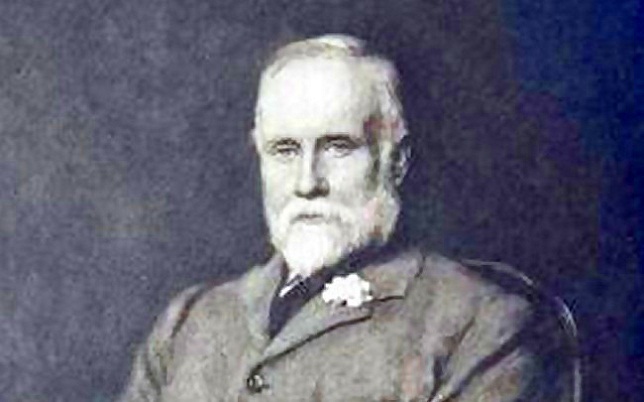
Bosworth Smith, a renowned British writer and author, writes about the sublime status of the Noble Prophet Muhammad:
“It was Muhammad, who was head of the State as well as of the Church,
He was Caesar and Pope in one: but he was a Pope without the Pope’s pretensions, and Caesar without the legions of Caesar.
Without a standing army, without a bodyguard, without the palace, without a fixed revenue,
If ever any man had the right to say that he ruled by a right Divine, it was Muhammad, for he had all the power without its instruments and without its supports.”1
He cared not for the dressings of power. The simplicity of his private life was in keeping with his public life.
In Mohammedanism everything is different here. Instead of the shadowy and the mysterious, we have history…. We know of the external history of Muhammad…. while for his internal history after his mission had been proclaimed, we have a book (Quran) absolutely unique in its origin, in its preservation…. on the Substantial authority of which no one has ever been able to cast a serious doubt.”
He further writes:
“By a fortune absolutely unique in history, Mohammed is a threefold founder of a nation, of an empire, and of a religion.
Illiterate himself, scarcely able to read or write, he was yet the author* of a book which is a poem, a code of laws, a Book of Common Prayer, and a Bible in one, and is reverenced to this day by a sixth of the whole human race as a miracle of purity of style, of wisdom, and of truth. It was the one miracle claimed by Mohammed — his ‘standing miracle’ he called it; and a miracle indeed it is.”2
*Muhammad is not the author of Qur’an, rather it is a revelation from Allah on His Greatest and Final Messenger Muhammad through Angel Jibrael.
- R. Bosworth Smith: Mohammed and Mohammedanism-Lectures at the Royal Institute of Great Britain, London 1874, p. 235
- R. Bosworth Smith: Mohammed and Mohammedanism-Lectures at the Royal Institute of Great Britain, London 1874, p. 237
Related: Philosophy of Zakat in Islam
Dutch Scholar Christiaan Hurgronje – Muhammad is the “Founder of League of Nations”
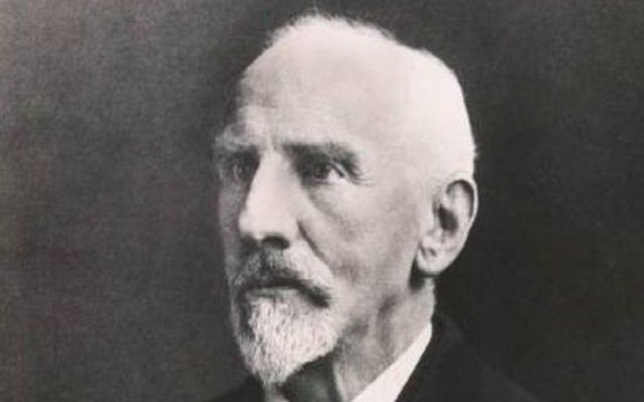
Christiaan Hurgronje (1857–1936) was a Dutch scholar of oriental cultures and languages. He was fluent in Arabic language and was one of the first Western scholar of oriental cultures to go on for a pilgrimage to the Holy city of Mecca in 1885. Professor Hurgronje writes:
“The league of nations founded by the Prophet of Islam put the principles of international unity and human brotherhood on such universal foundations as to show candle to other nations”
He continues further;
“The fact is that no nation of the world can show a parallel to what Islam has done towards the realization of the idea of the League of Nations.
The world has not hesitated to raise to divinity of individuals whose lives and missions have been lost in legend.
Historically speaking, none of these legends achieved even a fraction of what Muhammad accomplished. And all his striving was for the sole purpose of uniting mankind for the worship of One God on the codes of moral excellence.
Muhammad (PBUH) or his followers never at any time claimed that he was a son of God or the God incarnate or a man with divinity – but he always was and is even today considered as only a Messenger chosen by God.”1
- Al-Daawah, July 2004, p 48.
Related: Indian political and administrative structure under Muslim rule
Great Author Leo Tolstoy-Muhammad is the Great Reformer

A master of realistic fiction and one of the world’s greatest novelists Leo Tolstoy had said about Prophet Muhammad:
“Muhammad has always been standing higher than Christianity. He does not consider GOD as a human being and never makes himself equal to GOD. Muslims worship nothing except GOD and Muhammad is his messenger. There is not any mystery and secret in it.”
“There is no doubt that the Prophet Muhammad was a great reformer who did a magnificent service to human society.
It is honor enough to say that he guided a whole nation to the light of truth and caused it to incline towards stability and peace and to prefer an ascetic lifestyle.
He prevented it from shedding blood and presenting human sacrifices.
He opened up for it the way of prosperity and civic living. This is a tremendous achievement, which can only be undertaken by a powerful personality. A man like this is worthy of respect and honor”.
Related: Famous tombs and shrines of great Muslims of India
British Author John Davenport – Muhammad is Great Benefactor of Mankind
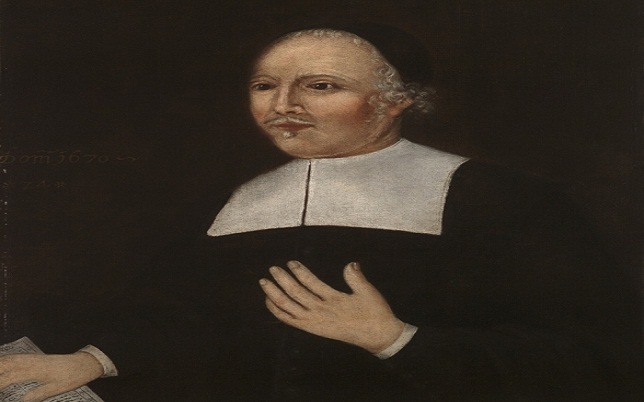
“His simple eloquence, rendered impressive by the expression of a countenance wherein awfulness of majesty was tempered by an amiable sweetness, excited emotions of veneration and love.
He was gifted with that authoritative air of genius which alike influences the learned and commands the illiterate.
As a friend and a parent, he exhibited the softest feelings of our nature . . .
With all that simplicity which is so natural to a great mind, he performed the humbler offices whose homeliness it would be idle to conceal with pompous diction;
Even while Lord of Arabia, he mended his own shoes and coarse woollen garments, milked the ewes, swept the hearth, and kindled the fire, dates and water were his usual fare, and milk and honey his luxuries. When he travelled he divided his morsel with his servant.”
John Davenport “An Apology for Mohammed and the Koran” London 1869
Related: Responsibility of Muslim parents on birth of a child
British Orientalist De Lacy O’Leary – Islam was not Spread by Sword
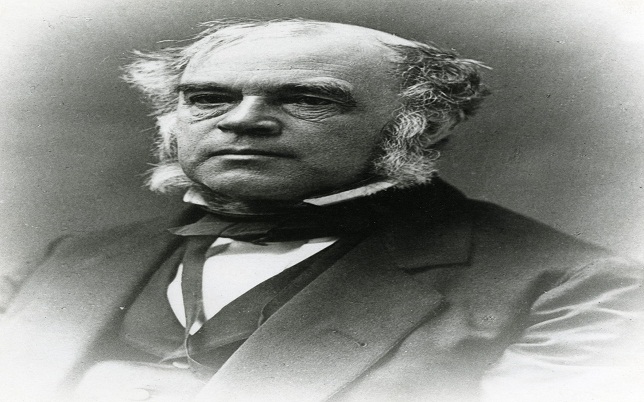
De Lacy Evans O’Leary (1872–1957) was a British Orientalist who lectured at the University of Bristol and wrote a number of books on the early history of Arabs and Copts. He says on Muhammad:
“History makes it clear, however, that the legend of fanatical Muslims sweeping through the world and forcing Islam at the point of sword upon conquered races is one of the most fantastically absurd myths that historians have ever repeated.”
De Lacy O’Leary ‘Islam at the Crossroads’ London, 1923
Related: Amazing contribution of great Sufis in India
Scottish Historian William Montgomery Watt – Muhammad is Great
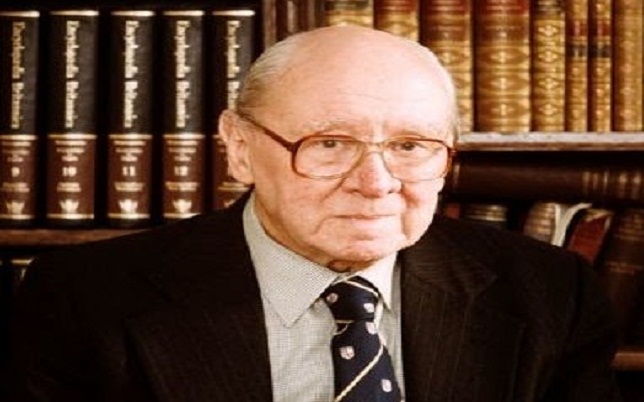
William Montgomery Watt (1909 – 2006) was a Scottish historian, Orientalist, Anglican priest, and academic. He was Professor of Arabic and Islamic studies at the University of Edinburgh. Watt was one of the foremost non-Muslim interpreters of Islam in the West and Watt’s comprehensive biography of the Islamic prophet Muhammad, “Muhammad at Mecca” and “Muhammad at Medina” are very famous.
“To suppose Muhammad an impostor raises more problems than it solves. Moreover, none of the great figures of history is so poorly appreciated in the West as Muhammad….
Thus, not merely must we credit Muhammad with essential honesty and integrity of purpose, if we are to understand him at all.
If we are to correct the errors we have inherited from the past, we must not forget that the conclusive proof is a much stricter requirement than a show of plausibility, and in a matter such as this, it is only to be attained with difficulty.”1
1. Montgomery Watt ‘Muhammad at Mecca’ Oxford, 1953
Related: Muslims gave highway and postal system to India
American Psychoanalyst Jules Masserman – Muhammad is the Greatest Leader of All Times
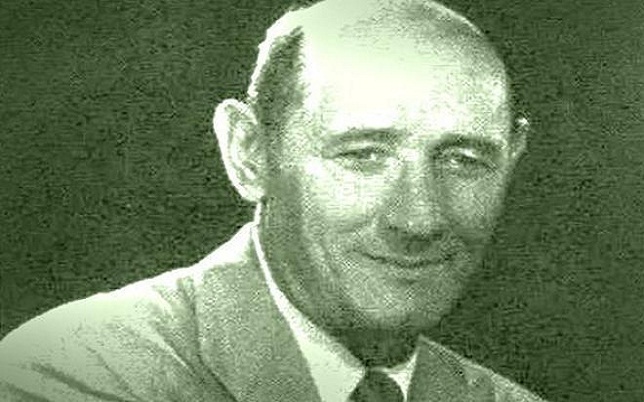
Jules Masserman is a well known modem psychoanalyst of the United States and after critical study of the most influential leaders of the world; he has laid down a criterion for assessment of greatness of leadership.
Criteria for Assessment of Greatness of Leadership
According to his analytical view:
“Leaders must fulfill three functions:
- Provide for the well-being of the led.
- Provide a social organization in which people feel relatively secure.
- Provide them with one set of beliefs.
People like Pasteur and Salk are leaders in the first sense.
People like Gandhi and Confucius, on one hand, and Alexander, Caesar and Hitler on the other, are leaders in the second and perhaps the third sense.
Jesus and Buddha belong in the third category alone.
Perhaps the greatest leader of all times was Mohammed. To a lesser degree Moses did the same.” 1
One is profoundly astonished to see that two hundred years ago in the 18th century, it was Thomas Carlyle who placed Muhammad, as the Hero of all the great Prophets.
Then again in the 20th century, which is the age of reason and science, an American psychoanalyst acknowledged him as the greatest leader of all times, after comparing him with Alexander, Caesar, Gandhi and Confucius, even with Buddha, Jesus and Moses.
- “Who Were History’s Greatest leaders.” Time Magazine. July 15. 1974
Recommended:
- Muslim rulers gave huge number of educational institutes to India
- Huge gardens and tree plantations by Muslim rulers of India
- Huge water bodies by Muslim rulers India

